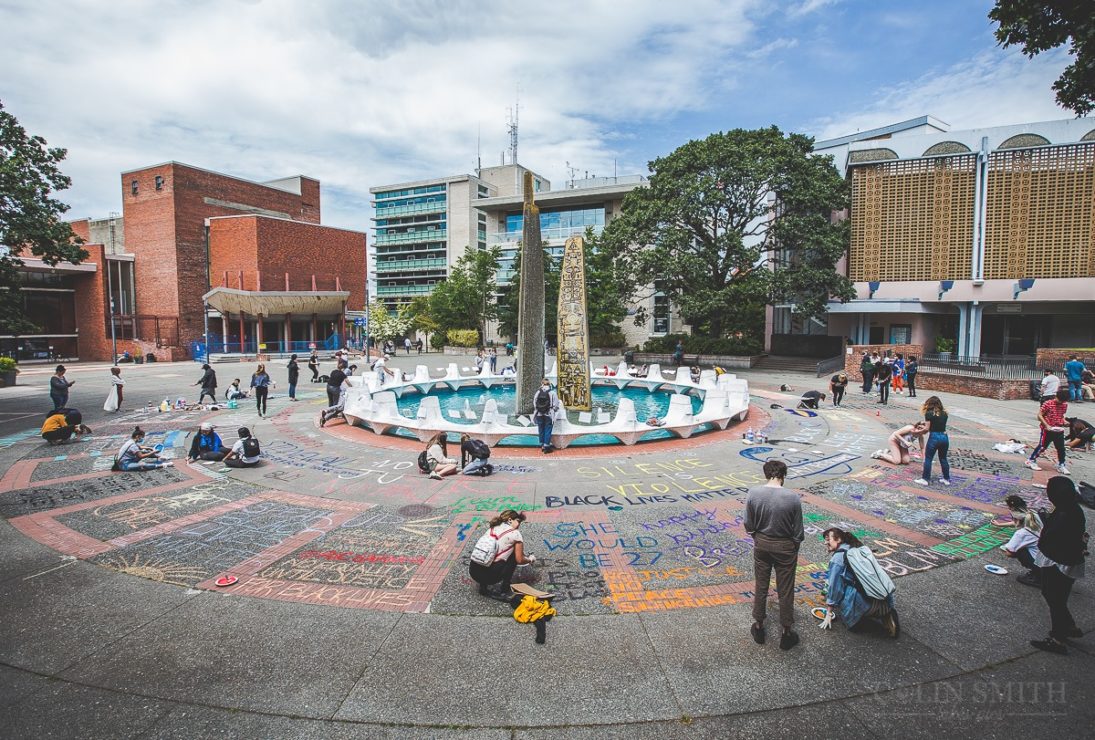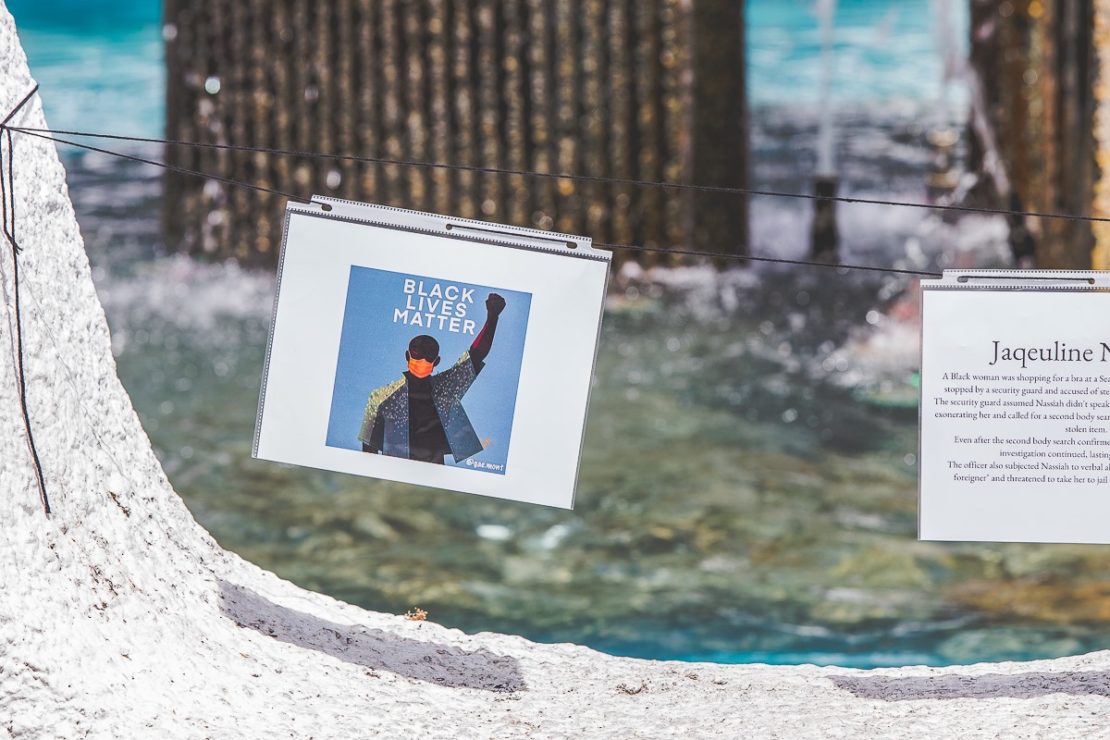“Peopleless protest” aims to start dialogue about racism, but faced some backlash

In response to George Floyd’s death from police brutality, a tight-knit group of young women of colour from Victoria came together to memorialize victims of police brutality and highlight the Black Lives Matter movement in early June.
They organized a “peopleless protest” on June 2, in an effort to create a space for public awareness while still respecting ongoing public health concerns. The group created a memorial for American and Canadian victims of police brutality by displaying names, quotes, and photos around the central fountain in Centennial Square in downtown Victoria.
With the goal of starting a dialogue through art about racism, the organizers were disappointed to find their memorial taken down only two days after its construction.
The rally’s principal organizers were Sarah Knight, Salma Arale, Agartu Ali, Zara Chaudhry, Aminah Ibrahim, Raja Johnston, and Fatuma Ibro-Ali.
“We didn’t want to be performative activists — it took a lot of thinking, planning, [and] brainstorming to execute,” says Ali.
Further messages of solidarity, including “Black Lives Matter,” were written in colourful chalk around the fountain.
The group of young women organizing the event particularly wanted to highlight their perspectives and create a space for dialogue about racialized experiences.
Just two days after the original display was set up, the organizers found the central memorial display taken down and crumpled in a pile. They also found a work order from the city for the chalk to be power-washed, though Knight says they obtained Victoria Mayor Lisa Helps’s direct approval.
The women were disappointed to see the memorial destroyed so soon after the initial setup.
Knight recalls other members of the group getting emotional at the sight of the display’s vandalization. “It looked like this is how Canada and Canadians feel about Black lives,” said Knight.

Arale felt similarly about the take-down, but also believes that it validated the core message the group was trying to put forward — it made enough of a statement about racialized experiences with police brutality for someone to be bothered by it and take it down.
On June 5, the women reunited along with general members of the Victoria community to rebuild the memorial and create additional artwork with chalk and cardboard posters.
“At the end of the day, the community really showed up at the next event and [proved] that Victoria is more than the one isolated incident that happened. The amount of people that helped rebuild … was a testament to that fact,” Arale says.
The women estimate there were around 50 people who helped reinstate the memorial and create artwork.
Ali emphasized the central role of art in both instances of the rally. As the 2018 Youth Poet Laureate for Victoria and an active artist, she felt it was important for the artwork to both engage people by drawing in their initial attention, but also by serving as the medium for the public to engage with deeper social issues like racism.
“Art is the most vulnerable form of therapy that there is,” says Ali. “As a racialized person, it is such a big thing to speak on your experiences through art. People have this amazing ability to empathize with stories more so than statistics.”
The young women emphasize the need to address racism as an ongoing issue — far from one that has simply remained in Canada’s past.
“When we don’t want to face the hard truth, we let people of colour carry that burden and the repercussions of pretending that racism doesn’t exist in Canada,” says Arale.
The women hope that by creating spaces for greater engagement with issues of racism, Victorians can do just that — educate themselves and take action.







